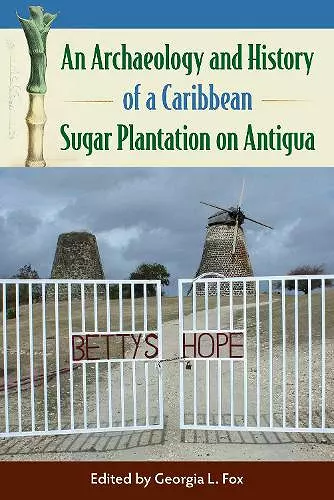An Archaeology and History of a Caribbean Sugar Plantation on Antigua
Format:Hardback
Publisher:University Press of Florida
Published:2nd Mar '20
Currently unavailable, currently targeted to be due back around 31st January 2025, but could change

This volume uses archaeological and historical evidence to reconstruct daily life at Betty's Hope plantation on the island of Antigua, one of the largest sugar plantations in the Caribbean. It demonstrates the rich information that multidisciplinary studies can provide about the effects of sugarcane agriculture on the region and its people.Drawing on ten years of research at the 300-year-old site, these essays uncover the plantation's inner workings as well as its connections to broader historical developments in the Atlantic World. Excavations at the Great House reveal similarities to other British colonial sites, and the detailed records of the plantation owners describe their involvement in the slave trade. Artifacts uncovered from slave quarters—ceramic game tokens, repurposed bottle glass, and musket balls converted to fishing weights—speak to the agency of slaves in the face of difficult living conditions. Contributors also use documentary records and soil analysis to demonstrate how three centuries of sugarcane monocropping caused soil degradation that still affects the island.Today tourism has long surpassed sugar as Antigua's primary economic driver. Looking at visitor exhibits and new technologies for exploring and interpreting the site, the volume discusses best practices in cultural heritage management at Betty's Hope and other locations that are home to contested historical narratives of a colonial past. A volume in the Florida Museum of Natural History: Ripley P. Bullen Series
ISBN: 9781683401285
Dimensions: 229mm x 152mm x 19mm
Weight: 620g
336 pages